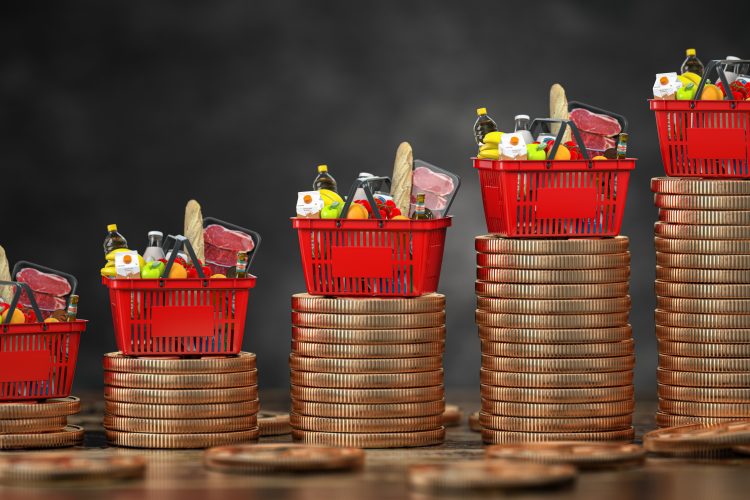Get used to rising food prices – global supply chains feeling the pinch
- Like
- Digg
- Del
- Tumblr
- VKontakte
- Buffer
- Love This
- Odnoklassniki
- Meneame
- Blogger
- Amazon
- Yahoo Mail
- Gmail
- AOL
- Newsvine
- HackerNews
- Evernote
- MySpace
- Mail.ru
- Viadeo
- Line
- Comments
- Yummly
- SMS
- Viber
- Telegram
- Subscribe
- Skype
- Facebook Messenger
- Kakao
- LiveJournal
- Yammer
- Edgar
- Fintel
- Mix
- Instapaper
- Copy Link
Posted: 11 October 2021 | Joshua Minchin (New Food) | No comments yet
Food prices around the world are on the up as a variety of factors come together to increase pressure on the food and beverage supply chain – is this something that consumers are simply going to have to get used to?


Consumers have been told to get used to higher food prices as the cost of essentials begins to rise in the wake of the global pandemic and supply chain issues.
The UK’s supply chain problems have been well documented, with the consensus being that a combination of the pandemic, as well as changes to immigration regulations as result of Brexit is to blame for the ongoing difficulties. This has, in addition, led to the average grocery shop costing more.
But the UK is not the only country facing this looming problem. The UN Food and Agriculture Organisation’s (FAO) Food Price Index averaged 130 points in the month of September – up 32.8 percent on the same period last year.
Miguel Patricio, Chief Executive of food and beverage manufacturing giant Kraft Heinz, said the firm was “raising prices, where necessary, around the world”.
Yet he also expressed his belief that the food industry has a responsibility to shield consumers from price hikes where possible.
“There’s a lot to come in technology to improve the effectiveness of farmers,” Patricio told the BBC.
“I think it’s up to us, and to the industry, and to the other companies to try to minimise these price increases.”
Kona Haque, head of research at the agricultural commodities firm ED&F Man, also told the BBC that in reality, big manufacturers such as Kraft Heinz and PepsiCo will be forced to pass on the cost of rising goods to consumers eventually.
“Whether it’s corn, sugar, coffee, soybeans, palm oil, you name it, all of these basic food commodities have been rising,” she said.
“Poor harvests in Brazil, which is one of the world’s biggest agricultural exporters, drought in Russia, reduced planting in the US and stockpiling in China have combined with more expensive fertiliser, energy and shipping costs to push prices up.”







